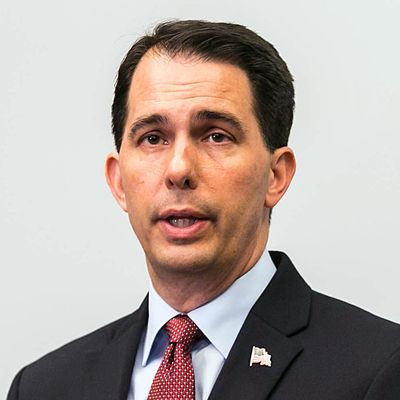
It’s not surprising that Republicans are wary of special elections in the Trump era. As Nathaniel Rakich observed earlier this month, Democrats around the country have over-performed based on voting history:
There have now been 127 special elections in 28 states since President Trump’s inauguration on Jan. 20, 2017. In the 95 of those races to pit at least one Democrat against at least one Republican, Democrats have outperformed the normal partisan lean4 of their districts by an average of 13.2 percentage points.
You can now add in Pennsylvania’s 18th congressional district as another data point that should trouble the GOP.
In Wisconsin, Governor Scott Walker, never one to put fairness ahead of partisanship, has found a convenient way to avoid embarrassing special election losses: by not holding special elections.
As is the case in most states, in Wisconsin the governor is responsible for calling special elections when legislative vacancies occur. Said governor has some leeway about when to hold said elections. But until Walker, it had not occurred to anyone to answer the question of “when” with “never.” Talking Points Memo explained:
Walker’s office has said it’s not worth the cost or effort to hold the votes, since regular congressional races will take place in November. But Democrats and their allies say Walker is just scared to lose.
“This is about them not wanting to be embarrassed by losing races in districts they have traditionally won,” Wisconsin Democratic strategist Sachin Chheda told TPM. “Everybody knows it, and I think it’s embarrassing that they’d make a decision on that basis rather than the small ‘d’ democratic tenets of giving people the right to choose their own representative.”
What makes the inaction especially ironic is that Walker created these vacancies his own self by appointing the two legislators in question (one member of the Senate, one member of the Assembly) to positions in his administration. So having removed representation for the 229,904 affected residents, Walker is now ensuring they lack representation for the rest of 2018, during a very lively period of activity in state government.
In February the governor was sued by the National Democratic Redistricting Committee, headed by former Attorney General Eric Holder (and focused on states like Wisconsin with competitive balances in state legislatures), who called Walker’s action “an affront to representative democracy.” On March 22, a local judge in Madison — one appointed, as it happens, by Walker — ruled in favor of the plaintiffs and ordered the governor to call elections, as the Milwaukee Journal Sentinel reports:
Dane County Circuit Judge Josann Reynolds — whom Walker appointed to the bench in 2014 — determined Walker had a duty under state law to hold special elections so voters could have representation in the Legislature. She said failing to hold special elections infringed on the voting rights of people who lived in the two districts.
“To state the obvious, if the plaintiffs have a right to vote for their representatives, they must have an election to do so,” said Reynolds.
Yes, that is kind of obvious. Walker is now undecided as to whether he will comply with the order or appeal it, giving himself some more bad publicity. The judge added to that bad publicity with a pretty direct shot at the governor’s motives:
“I cannot reconcile the incongruity between Gov. Walker’s administration’s very vocal and consistent policy advocating for strict constructionism and the position taken by the attorney general in this case involving the most basic constitutional guarantee,” Reynolds said.
Ouchy ouchy.
There’s obviously no guarantee the special elections, when they are finally held, will produce Democratic gains, or even the kind of over-performance that could be an omen for wins in more competitive districts in November. But it does not look like Walker’s attempt to reduce the risk of an unhappy result to zero will fly.






























